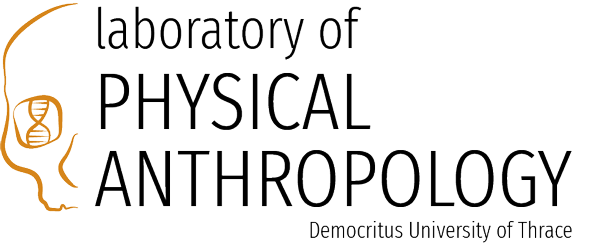
Menu
The project aims to analyse a series of 50 humans, including their full genomes, who lived in Greece from the Mesolithic to the Byzantine period. Based on the study of their skeletal remains and the reconstruction of each individual’s visible and functional phenotype, we create their “individual biographies”, and transfer these reconstructions into existing or new exhibitions, museums and cultural venues.
We propose a new approach to save, document, digitise, and share a previously underutilised source of human cultural and biological heritage information: namely, palaeogenomic and anthropological data taken directly from ancient humans
1
3
2
4

The Laboratory of Physical Anthropology of the Democritus University of Thrace was founded in 1993. Utilising cutting-edge technology, it studies the co-evolution of culture and biology and aims to reconstruct the biohistory of ancient and modern populations
The Palaeogenetics Group of the University of Mainz studies the genetic population history of humans and their domestic animals. It aims at recomposing the genetic, evolutionary and demographic processes that help us better understand the (pre) history of our species.
TETRAGON has been at the forefront of exhibition architecture, design, culture, tourism and the creative industry over the last decades. Its dynamic course is reflected in the numerous projects it has successfully implemented across Greece and abroad.

The Reiss-Engelhorn-Museums (rem) Mannheim are an outstanding exhibition location and important research center in Germany. With a total of 15,000m² of exhibition space and more than 1.2 million objects, the Reiss-Engelhorn-Museums is the largest museum complex in southern Germany under municipal sponsorship. Besides research, e.g. with the Curt-Engelhorn-Centre of Archaeometry, the main focus of the Museums is the presentation of the research results in high profile exhibitions.

This work was co-funded by the European Union and the General Secretariat of Research and Technology, Ministry Of Education, Research Religious Affairs under the project BioΜuse of the Bilateral R&T Cooperation Program Greece – Germany 2017. This support is gratefully acknowledged.